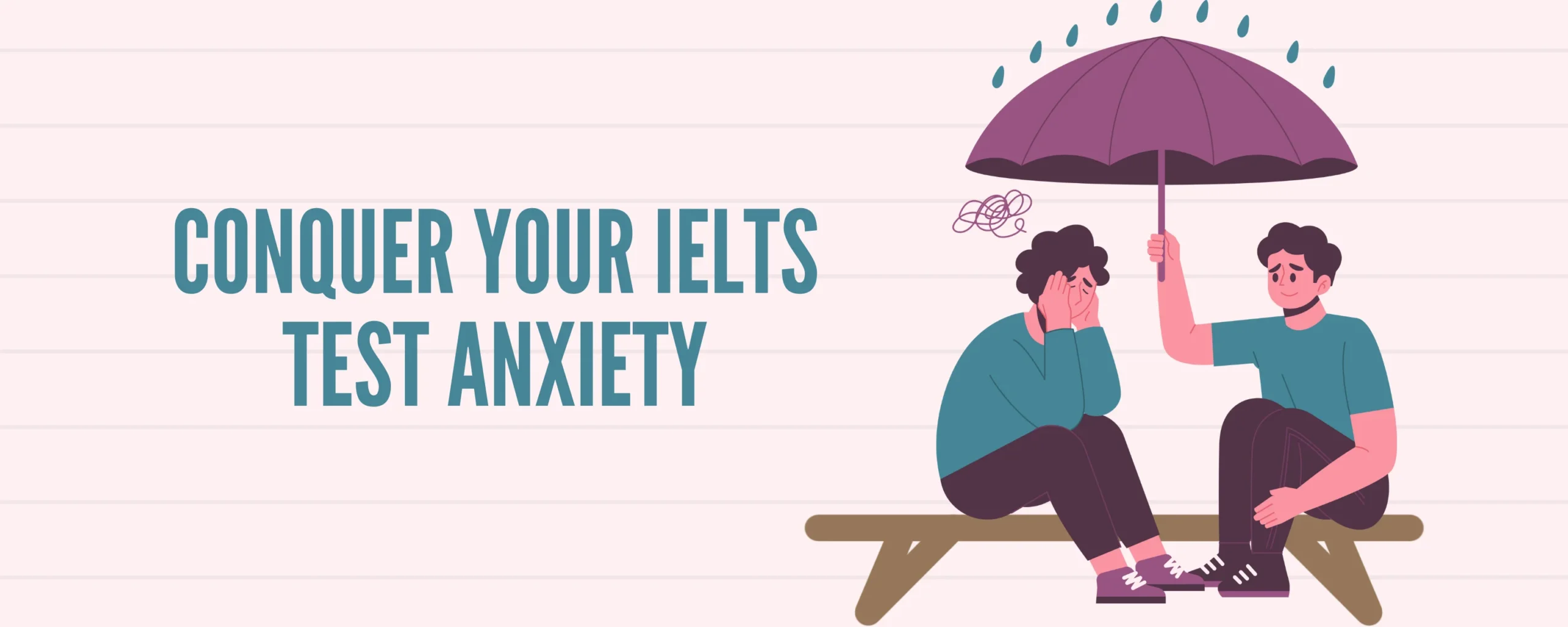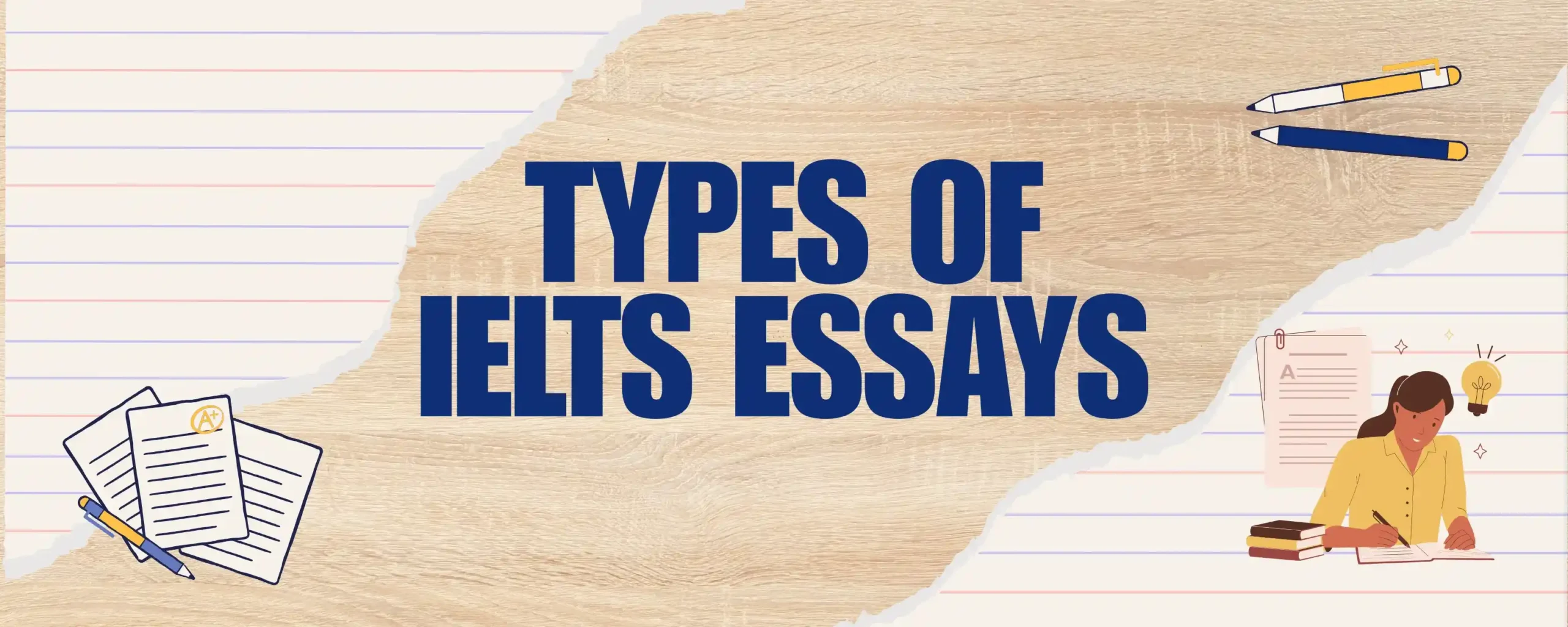The IELTS exam is a significant step for anyone aiming to study, work, or migrate to an English-speaking country. It evaluates crucial language skills and thus becomes a critical part of achieving academic or professional goals. While millions of applicants appear for the test, it is not ideal that everyone will get approved. This creates fear and a level of test anxiety in the minds of the applicants. This stress often stems from fear of failure, lack of preparation, or pressure to perform well. But with the right relaxation techniques, test anxiety can be managed, leading to better focus and performance.
In this blog, we’ll explore expert-backed relaxation techniques designed to help you overcome IELTS test anxiety. By understanding what triggers this anxiety and implementing effective calming strategies, you can approach test day feeling confident, focused, and prepared. Relax, breathe deeply, and get ready to tackle the IELTS with a positive mindset!
Common Causes of IELTS Test Anxiety
Test anxiety is a feeling of worry or fear that interferes with your ability to perform well on the test. We need to look at why our students may get anxious before their tests. Test anxiety is often triggered by a combination of internal fears and external pressures. Here are some of the most common causes:
- Fear of Failure: For many students, the IELTS is a gateway to future aspirations. The fear of not achieving the required score can be overwhelming, leading to increased stress and self-doubt.
- Lack of Preparation: Insufficient preparation or an unclear understanding of the exam format can amplify anxiety, making students feel less confident and more prone to mistakes.
- High-Score Expectations: Whether it’s to meet academic requirements or fulfill immigration criteria, the pressure to score high can be intense. This often leads to perfectionism, which increases stress when things don’t go as planned.
- Personal and External Pressures: Family expectations, peer comparisons, and societal pressure can all add layers of anxiety. Students may feel they are not only working towards their own goals but also trying to meet the expectations of others, adding to their stress.
Understanding these common causes can help in identifying and managing anxiety before it affects your performance.
Discover the Minimum IELTS Score for Canada Work Permit & PR and unlock your Canadian dream today!
Importance of Managing Test Anxiety
Managing test anxiety is essential for anyone aiming to perform well on exams like the IELTS. Studies show that anxiety, if left unaddressed, can interfere with concentration, memory recall, and problem-solving abilities, which are all critical to successful test-taking. When students experience intense anxiety, their focus becomes clouded, and even well-prepared individuals may struggle to showcase their true abilities.
Beyond its academic impact, test anxiety can also affect overall well-being. The stress associated with exams often leads to sleep issues, increased stress levels, and even physical health challenges. By learning to manage this anxiety, students not only improve their test performance but also protect their mental and physical health.
By adopting strategies to reduce anxiety, you can improve concentration, enhance memory recall, and boost overall confidence. When you feel calm and focused, you’re better equipped to tackle each question methodically and avoid rushed decisions. Ultimately, managing test anxiety not only supports a smoother test-taking experience but also increases your chances of achieving your target score, allowing you to approach the IELTS with clarity and control.
Effective Relaxation Strategies for IELTS Preparation
Conquering test anxiety involves practicing relaxation techniques that help you remain calm, focused, and confident. Here are some proven strategies:
- Breathing Techniques: Deep breathing exercises are a quick way to calm nerves. Try the “4-7-8” technique: inhale deeply for 4 seconds, hold for 7, then exhale slowly for 8. Repeat this cycle a few times to lower your heart rate and reduce stress instantly.
- Mindfulness and Meditation: Mindfulness practices train you to focus on the present moment, reducing distracting thoughts. Begin with short meditation sessions where you close your eyes, focus on your breathing, and observe any thoughts without judgment. This practice improves focus and helps keep anxiety at bay.
- Progressive Muscle Relaxation: This technique involves tensing and then relaxing each muscle group in the body. Start from your toes and work your way up, tensing each muscle for a few seconds before relaxing. This systematic approach relieves physical tension, leaving you feeling relaxed and refreshed.
- Visualization Techniques: Imagine yourself confidently taking the test in a calm, focused state. Visualize each section of the exam going smoothly and picture yourself finishing with satisfaction. This mental rehearsal builds confidence and reduces feelings of uncertainty about test day.
Integrating these relaxation techniques into your preparation routine can help you stay composed, manage anxiety, and approach the IELTS with confidence.
Pre-Test Day Preparation Tips
Preparing for the IELTS isn’t just about studying—it’s also about ensuring you’re mentally and physically ready. Here’s how to set yourself up for success the day before:
- Review Key Topics: A day before the test, focus on a light review of essential topics rather than intensive study. This helps reinforce what you already know without overwhelming yourself.
- Pack Your Essentials: Organize everything you need for test day, including your ID, test confirmation, stationery, and a water bottle. Having these items ready reduces stress and ensures you won’t be scrambling last-minute.
- Stick to a Healthy Routine: Get a good night’s sleep, fuel your body with a balanced diet, and do some light exercise to relieve any tension. A rested mind and body are key to staying calm and focused during the test.
On-the-Test-Day Relaxation Techniques
Staying calm and composed on test day is vital for optimal performance. Here are some practical strategies to keep your nerves in check:
- Positive Affirmations: Words have a huge impact on the mind so positive thinking is a must. Before the test, practice deep breathing or repeat positive affirmations like, “I am prepared, and I will do my best.” During the test, take mini-breaks by pausing for a few seconds to breathe deeply if you feel overwhelmed.
- Stay Calm in Stressful Moments: If you encounter a challenging question, don’t panic. Skip it for the moment and return to it later. Remind yourself that one tough question doesn’t define your entire performance.
- Avoid Last-Minute Revision: Trying to cram information just before the test can increase stress and clutter your mind. Instead, use this time to relax, center yourself, and focus on maintaining a calm mindset.
Post-Test Relaxation and Reflection
After the test, it’s important to unwind and clear your mind. Here’s how to effectively relax and reflect on your experience:
- Engage in Relaxation Activities: Take time to do something calming, like a walk, listening to soothing music, or practicing light stretching. These activities help release any lingering stress from the test.
- Reflect Positively: Instead of focusing on any mistakes, reflect on what went well during the test. Recognize the progress you’ve made and celebrate your efforts.
- Plan for Future Improvements: Once you’ve relaxed, take a moment to think about what you can improve for next time. Reflect on any areas you found challenging and set a plan to strengthen them for future exams.
Conclusion
Test anxiety is a common challenge, but it is entirely manageable with the right strategies. By incorporating relaxation techniques like deep breathing, mindfulness, and visualization, you can stay calm, focused, and confident during your IELTS preparation at home and on test day. Remember, a positive mindset and effective stress management can significantly boost your performance.
There is no need to put unnecessary strain or stress on yourself. So, take a deep breath, utilize these tips, and confidently approach the IELTS exam. Believe in your preparation and abilities—you’ve got this! Stay calm, stay focused, and let your hard work shine through.
Frequently Asked Questions
Q: How Can I Stay Calm During the IELTS Exam?
Ans: Staying calm during the IELTS exam is crucial to performing your best. Here are some strategies to help you remain composed:
- Practice Deep Breathing: Before and during the exam, take deep breaths to calm your nerves. This helps reduce stress and refocuses your mind.
- Maintain a Positive Mindset: Remind yourself that you are well-prepared and capable. Positive affirmations can boost your confidence and reduce anxiety.
- Take Mini Breaks: If you feel overwhelmed, take a brief pause (even if just for a few seconds) to relax your body, breathe, and refocus.
Q: What Are the 3 Ways to Overcome Test Anxiety?
Ans: Overcoming test anxiety involves managing stress and staying focused. Here are three effective ways:
- Prepare in Advance: Create a study schedule well before the exam to avoid last-minute cramming. Familiarizing yourself with the test format and practicing under timed conditions can reduce anxiety. Enroll in IELTS coaching to get a personalized study plan.
- Practice Relaxation Techniques: Use methods such as deep breathing, progressive muscle relaxation, and mindfulness to calm your nerves both before and during the exam.
- Shift Your Focus from Perfection: Recognize that it’s okay to make mistakes. Don’t focus on perfection; instead, focus on doing your best and learning from the experience.
Q: How to Overcome the Fear of the IELTS Exam?
Ans: The fear of the IELTS exam often stems from the pressure of performing well. Here’s how to overcome it:
- Shift Your Perspective: See the exam as a chance to showcase your language skills, not as a life-defining event. Reframe the fear as excitement about the opportunity to demonstrate what you know.
- Desensitize Yourself: Practice regularly using real IELTS materials to build familiarity and confidence. The more you expose yourself to the test format, the less intimidating it will seem.
- Visualize Success: Picture yourself taking the exam calmly and confidently, achieving the score you need. Visualization helps reduce fear and boosts your self-belief.





